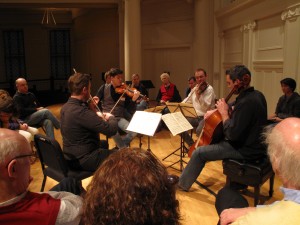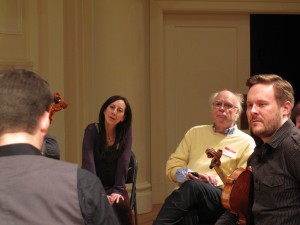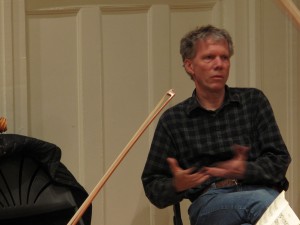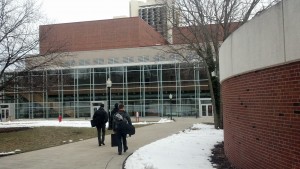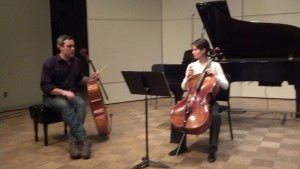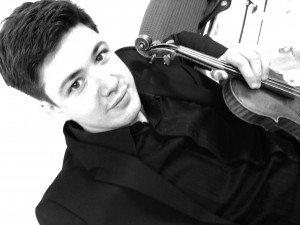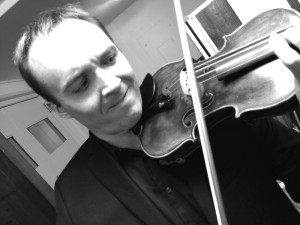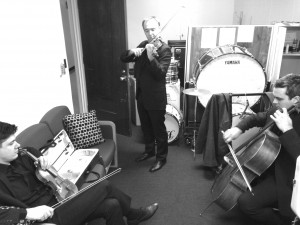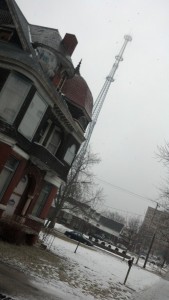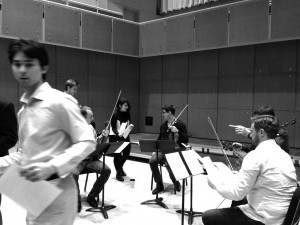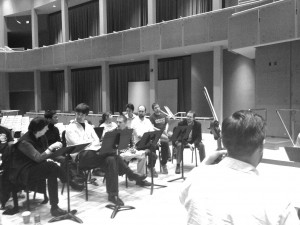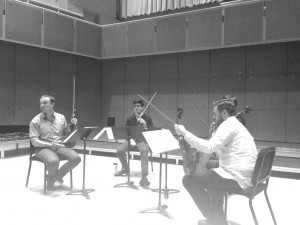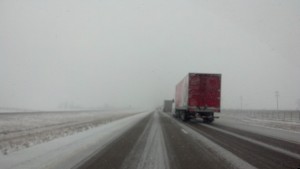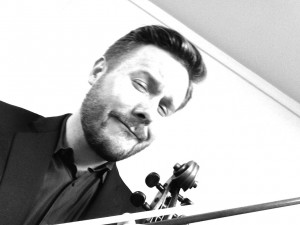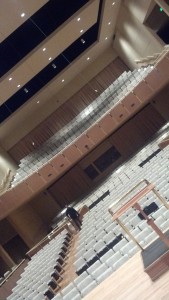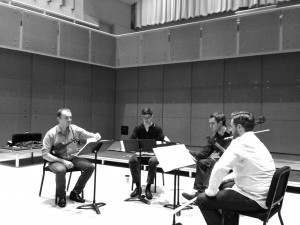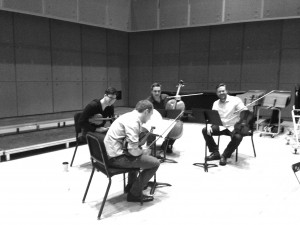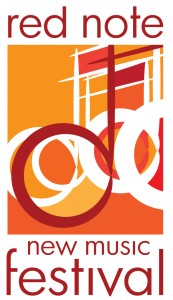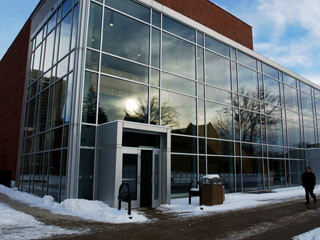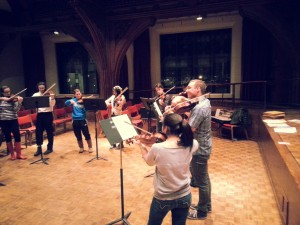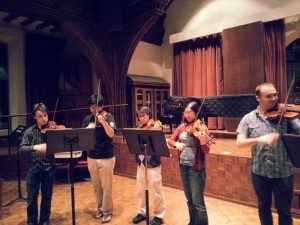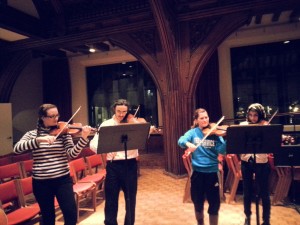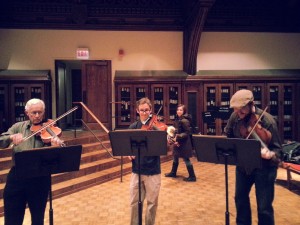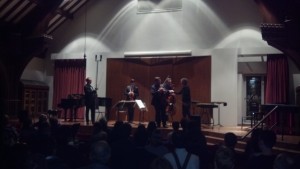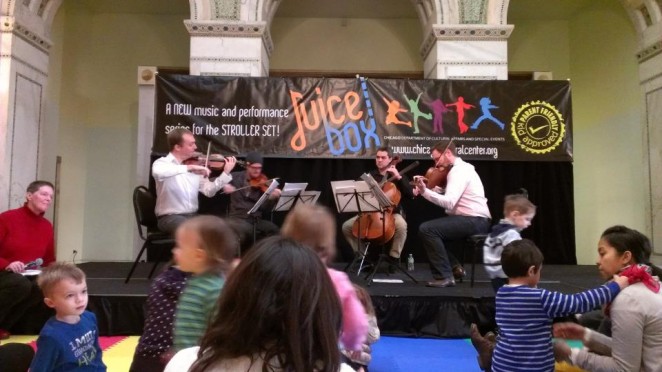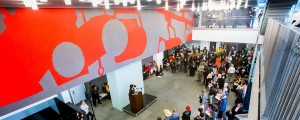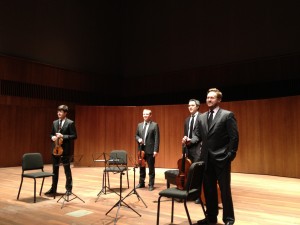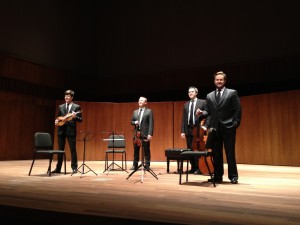This September, we made our first of three visits to the University of Iowa this season for a brand-spankin’-new residency model that is more audacious than anything we’ve ever attempted. Rather than just the typical coaching+inspiring speech+concert format, visionary professor Elizabeth Oakes – and our own Clara Lyon – decided to dream big and have us shepherd a handful of chamber groups through the process of producing, promoting, and executing their own event.
We certainly wish we would have had an opportunity like this while in school.
You may have noticed that the photo at the top of this post is one of students showing off a tower made only of dry spaghetti, masking tape, and dental floss…all dubiously supporting a single marshmallow. We started the residency with the Marshmallow Challenge to prove a point: success is about trying and doing more than it is about fretting and planning.
Across the 2019/20 season, we will mentor these talented musicians through the rigorous – and rewarding – ins and outs of producing an interdisciplinary show: programming the right mix of music, building relationships with community partners and artistic collaborators, finding and working with a new venue, designing an audience experience that gives context and meaning to the music, creating a brand identity, and getting the public excited about showing up to that show.
So, all the stuff. It’s a testament to the U-Iowa students that as they became aware of the enormity of this project, they didn’t scramble for the exists.
Of course we did a bit of coaching as well, and the fun thing here is that, rather than just picking nits, we were able to uncover how pieces might relate to one another in the context of a larger event. Like — Schnittke is cool, but how does one situate a moody, hymn-like number to fit within, say, a salon-style experience? It isn’t just about playing in tune or with perfect balance. It’s about how the audience might navigate an evening of music, and get captivated to such an extent that they immediately ask where they can get tickets to the next one.
In the spirit of doing-rather-than-talking, we tried out a new concert format live for the Iowa City audience. “Something to Write Home About” asked the audience to write postcards (provided) based on prompts like “Write a letter to someone who needs encouragement,” or “Write a letter to your 15-year-old self.” We then followed this epistolary theme through music of Brahms, Beethoven, Shulamit Ran, and LJ White, inviting audience members to read their postcards aloud if they were so moved.
The unique angle of the show was a teaching moment…for us as much as the students. Again, one can only know if one tries.
The rest of our days were spent introducing all of the myriad elements of the Three P’s": Programming, Promotion, and Production. At the end of the day, this residency essentially packs a decade worth of trying/failing/succeeding into one school year.
The enterprising U of Iowa students – and we – say Bring It On.







